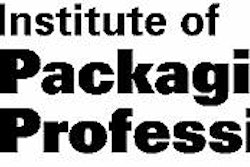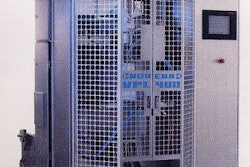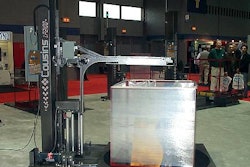“Rising [polyethylene] film prices have seriously hurt margins,” commented one converter, who added: “inability to get increased prices from customers” is a major issue. Another said: “Cannot raise prices to end users, yet materials are still going up.”
Others commented about contracts. One converter said his company’s major issue was “contracts that permit cost pass-through.” Another offered: “Raw material costs are difficult to pass through to customers, especially when there are several increases over a few months.” Still another noted how contracts can limit passing on cost increases: “Many contracts limit raw material increases, so stable prices are important.”
Some converters traced the cost issue directly to resin producers. One converter mentioned fewer sources: “Consoli-dation [among] resin producers results in fewer sources and higher prices.” Another pointed out: “Resin price run-ups threaten converter viability.”
Other comments about the primary business concern were less emotional. One converter put it this way: “Raw material cost management is critical.” Another pointed out that the “cost of resin is a key driver in overall profitability.” Finally, one converter analyzed: “Resin prices are going up because hydrocarbon prices are going up. It’s a finite resource.”
Others noted the effect of low-cost imports. “Prices of foreign imports are low, and U.S. competitors [are] lowering prices to compete,” said one converter. Another converter was more specific: “Brazil and the Far East offer pricing at or below U.S. costs.”
Others pointed to consolidation among customers. “Especially in pharmaceuticals, the big get bigger; prices go lower,” one converter mentioned. Another said that “continued end user consolidation [is] impacting supply agreements.”
Suppliers say much the same
Probably the key cost increase factor cited by suppliers to converters is energy costs. “High cost of natural gas/gas liquids [is] a huge issue!” noted one supplier. Another supplier said that energy costs “are at an all-time high as a percentage of sales revenue.” Another supplier said the country “must come up with a better energy plan.”
Many suppliers commented that the U.S. economy still needs to strengthen. “The economy must recover to obtain capacity utilization that supports reinvestment,” noted one supplier. Another simply said his company is “still awaiting true recovery” of the economy. Still another supplier linked the economy to outsourcing: “We need to see manufacturing jobs come back. But many jobs may be gone for good, for example, to China,” that supplier opined.
However, suppliers are also concerned about foreign imports. “Imports are a definite threat to our business,” said one supplier, while another warned that imports are “eroding the U.S. manufacturing base.” One supplier said his company was resigned to “expect [a] shift away from lower-end production to Asia/China.” But another saw an unfair advantage: “Subsidies of Chinese government undercut [U.S.] industry.”
See the story that goes with this sidebar: Cost of materials causing shifts























